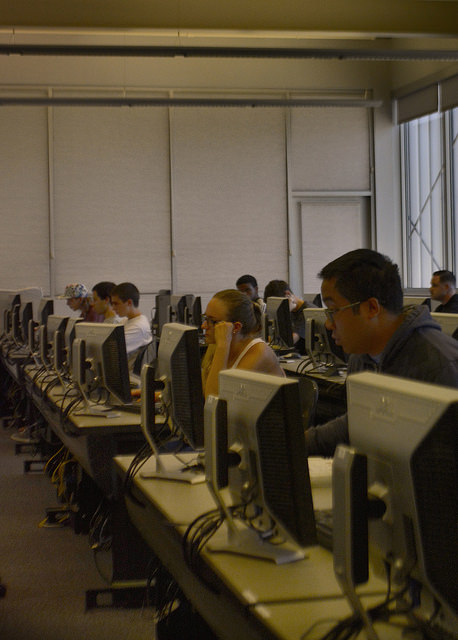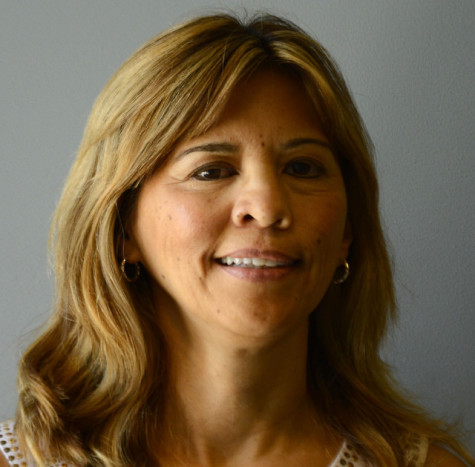DVC on target for full ADT compliance
Computer Science students in Cheryl Martucci’s software lab class may have a new transfer degree option to consider by next fall. Inquirer/Kendall Brescia
October 4, 2014
Despite remaining hurdles, Diablo Valley College appears to be on track for meeting state requirements to create specified Associate Degrees for Transfer by next fall.
The requirements are part of the Student Transfer Achievement Reform Act, intended to reduce costs and provide transfer students with a streamlined, expedited path to California State University graduation. The act, passed in 2010, mandates that community colleges develop standardized ADTs in each of the most popular majors. The ADTs must meet state-approved Transfer Model Curriculum.
DVC has already established all but two of the required degrees. Still in progress are those for Spanish and Computer Science majors. Each discipline has unique challenges to overcome.
In CS, it’s a matter of eliminating excess units. The department’s current associate degree requires a total of 64 units, while TMC allows only 60.
CS is considered a high-unit major, and DVC is not the only school facing this dilemma, Articulation Officer Merv Maruyama said. In fact, fewer than half of the California community colleges have established a CS ADT.
“Part of the issue is that (the state requires) a three-course sequence, and we have a five-course sequence that covers the same material,” CS Chair Robert Burns said. He feels that reducing the longer sequence would make it more challenging for students.
So what’s the solution?
Moving some of the lower level course units into the general education electives, so they can be double-counted, is one possible path, Burns said. This would allow students to count certain CS classes against both general ed and major-specific requirements, thereby reducing the total number of units needed.
“I think that’s really going to be our best bet,” he said.
Another approach will be to work with the math department to shave one unit off of the current math requirement. The CS major requires a math course that has one more unit than the TMC allows. It also covers more material than CS majors need, according to Burns.
“We’re trying to get the math department to rethink that, or give us a version of the course for CS majors, without the extra unit,” he said.
While it will be a challenge to meet TMC guidelines by the 2015 deadline, Burns believes it’s doable.
“We’re certainly committed to getting this done,” he said.
Sharing that sentiment is Foreign Language Department Chair Isabel Izquierdo.
In her area, a prerequisite is at issue. While the TMC makes first term Spanish a prerequisite for subsequent Spanish classes, DVC merely recommends that students begin with it, or an equivalent course.
And so far, the practice has worked well as students independently enroll in appropriate class levels. Izquierdo said it just makes sense.
“You’re not going to enroll in fourth term Spanish if you don’t know Spanish,” she said.
But in order to meet state requirements, the department will now adopt the prerequisite requirement, while allowing students to challenge it by taking a proficiency test. Though faculty had considered doing this in the past, it lacked the resources needed to manage the high volume of testing that’s expected.
Spanish is the most popular foreign language taken in high school, Izquierdo said. “So we expect dozens, if not hundreds of students to be challenging the prerequisite by taking the test.
“But we have a solution,” she said. “And that is to hire a part-time instructor to correct the tests.”
That alone will be a challenge, given current resource limitations. But it’s what’s needed to meet the state mandate. So over the next few weeks, Izquierdo said, department personnel will begin developing the proficiency test, and associated processes.
And by next fall, CS and Spanish majors will have the added option of pursuing ADTs in their respective fields.







































































